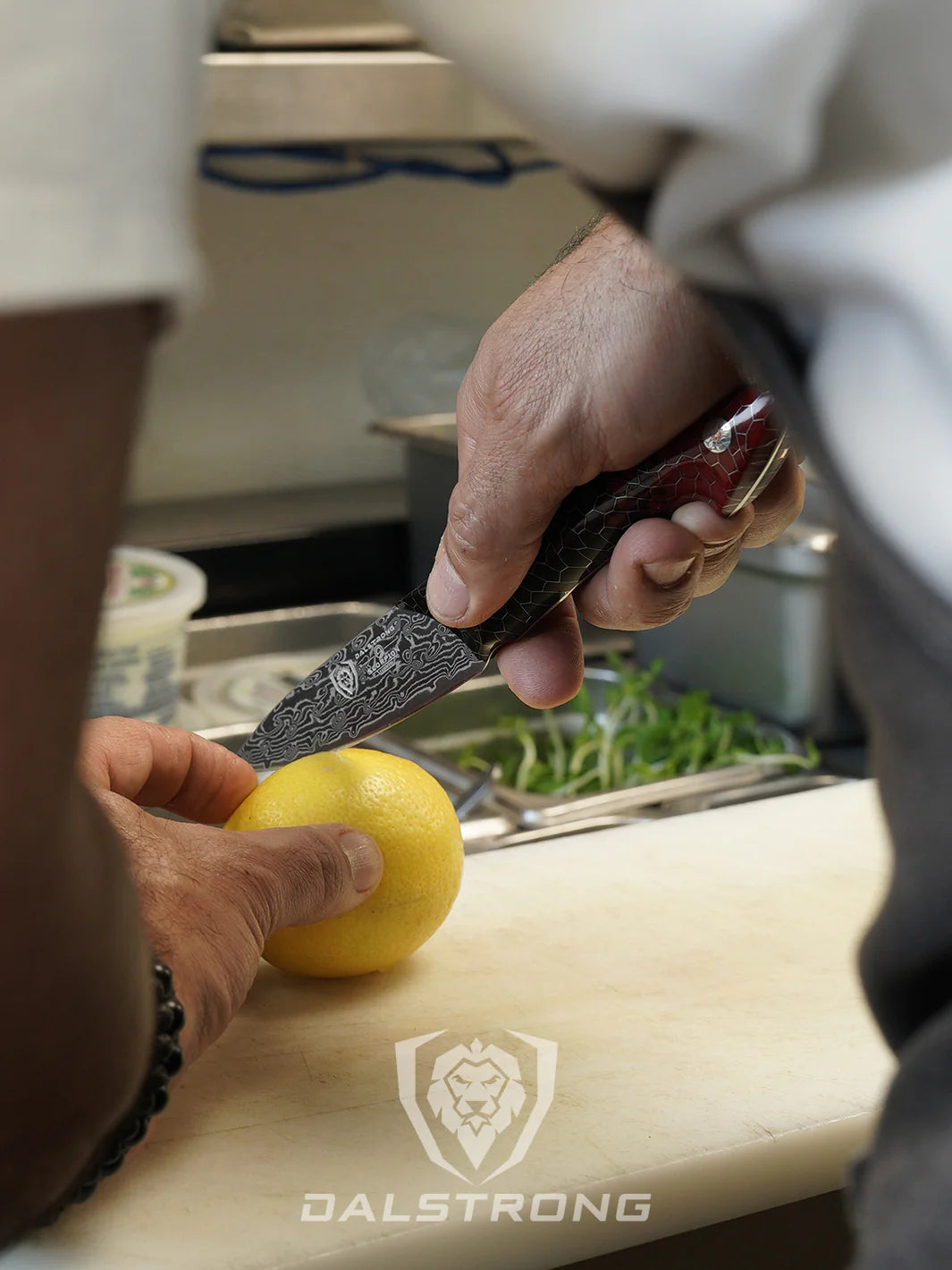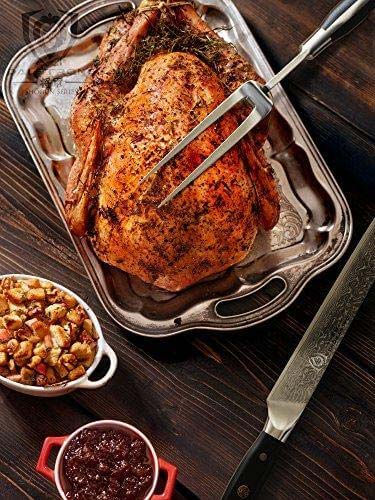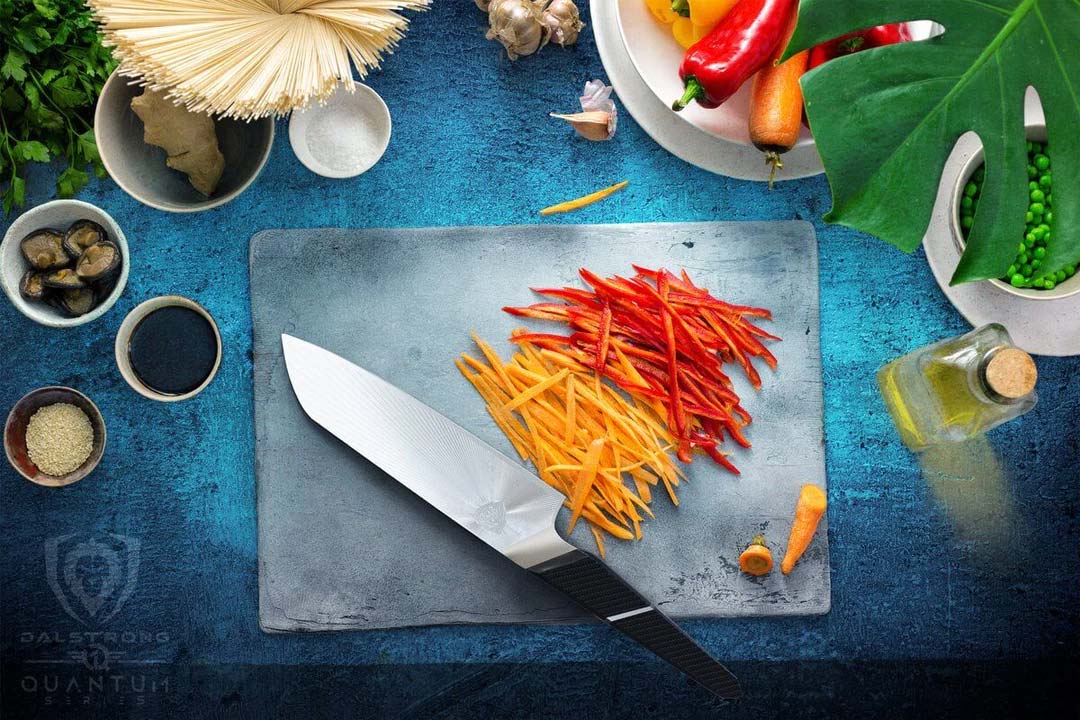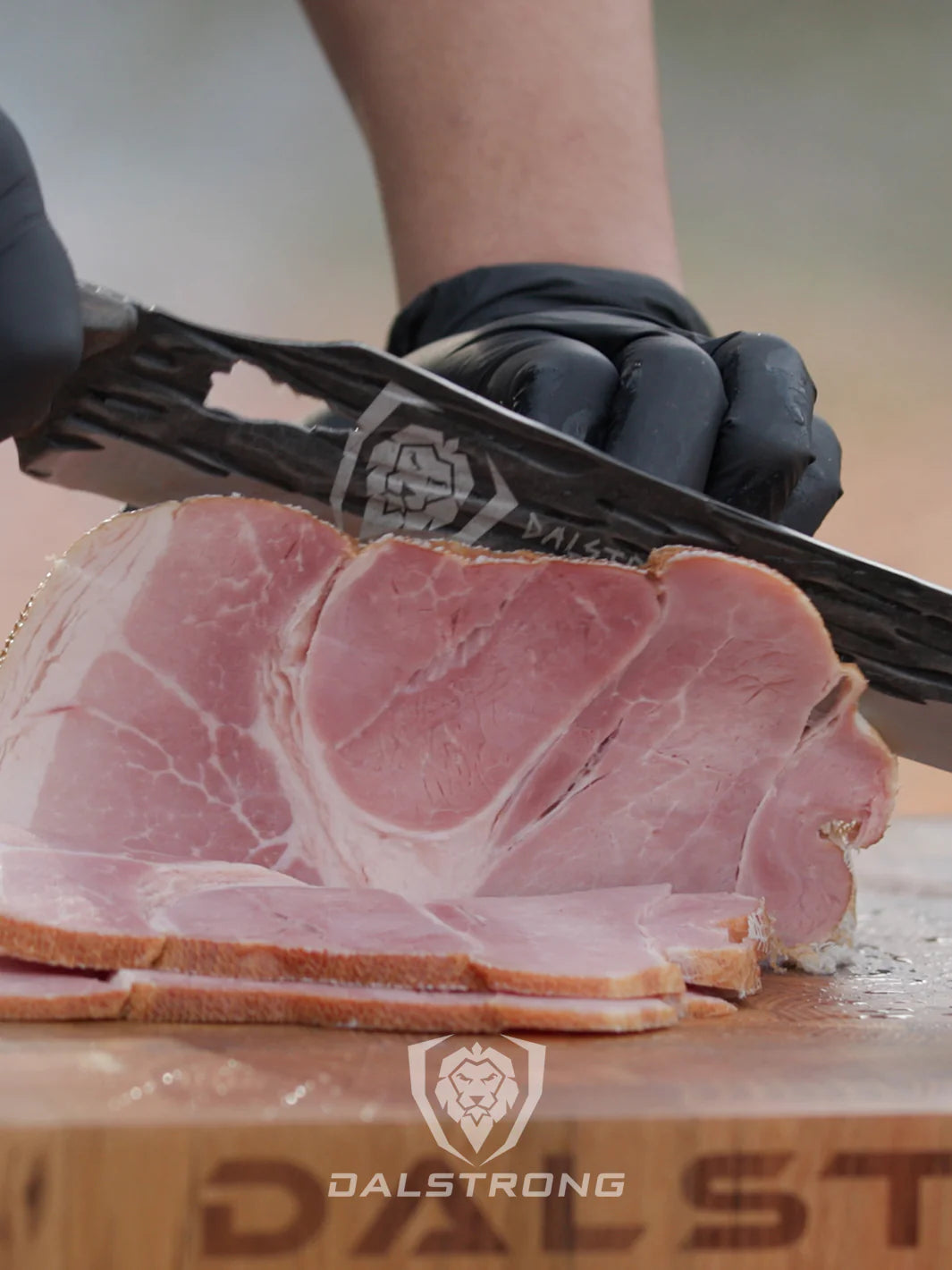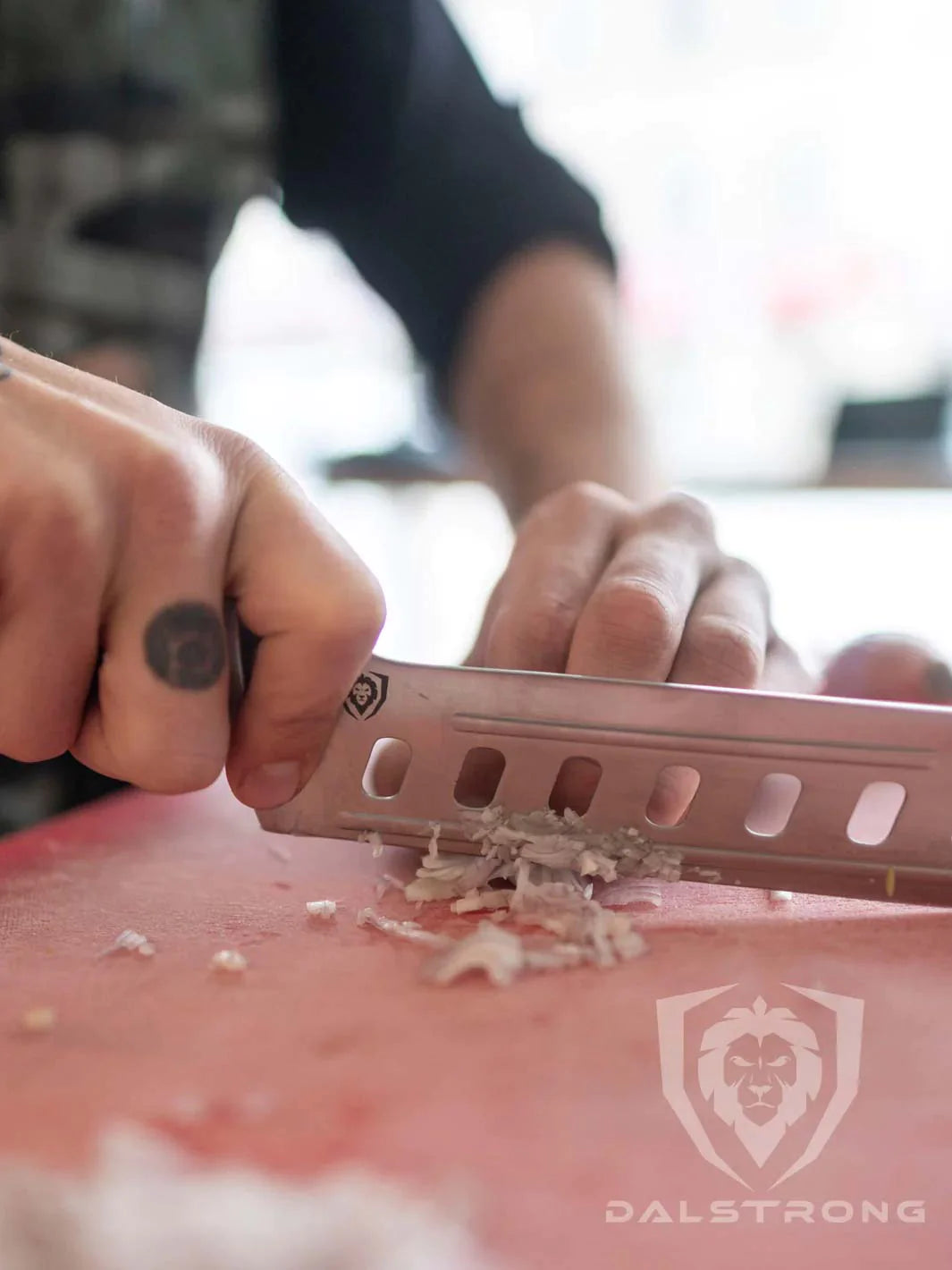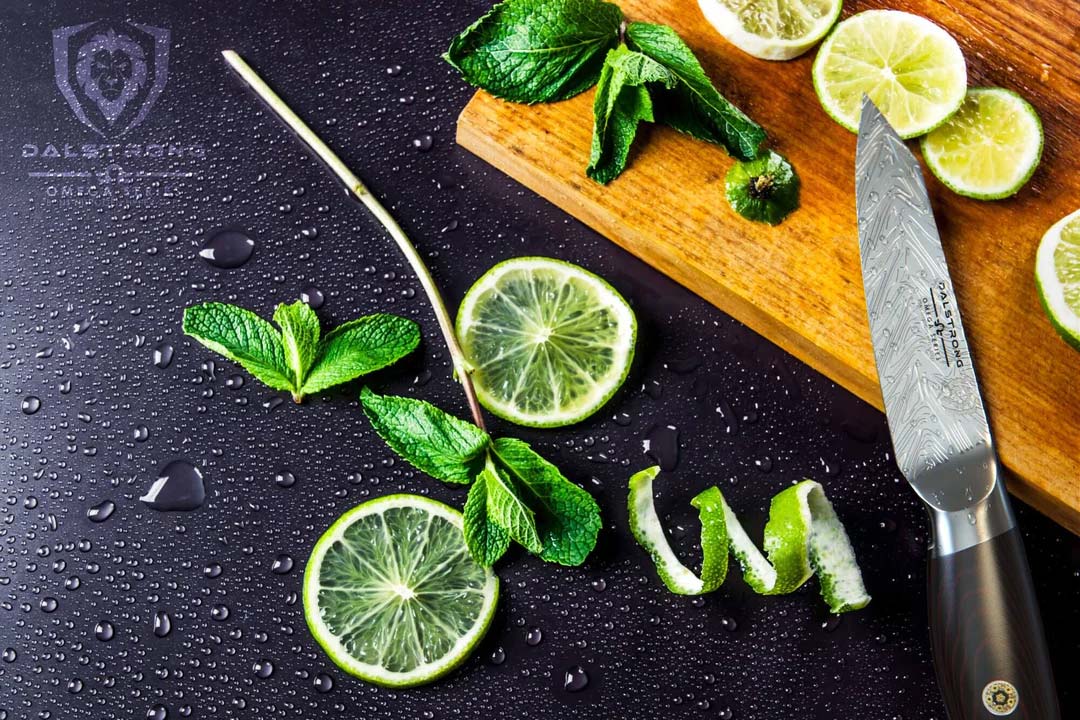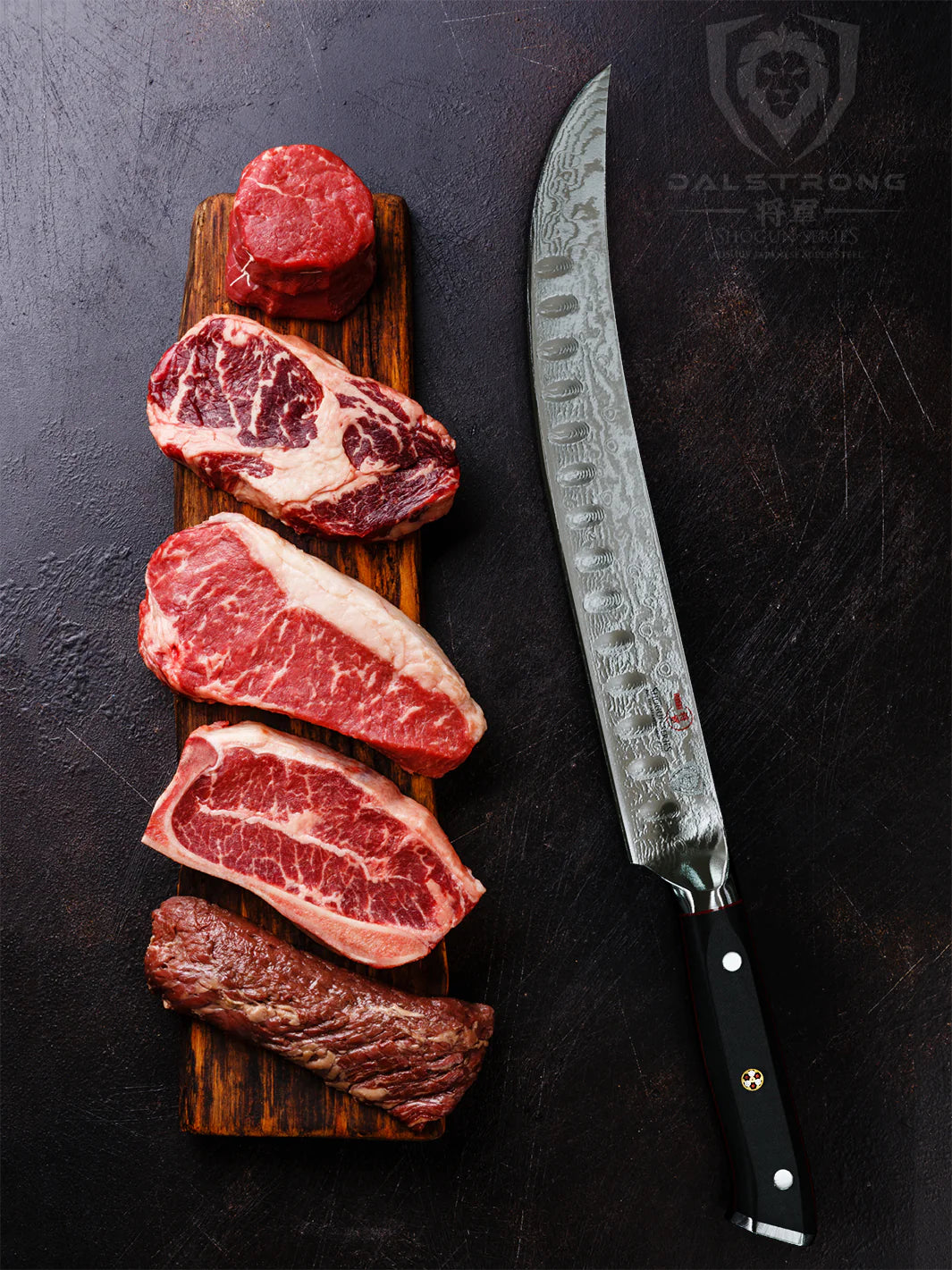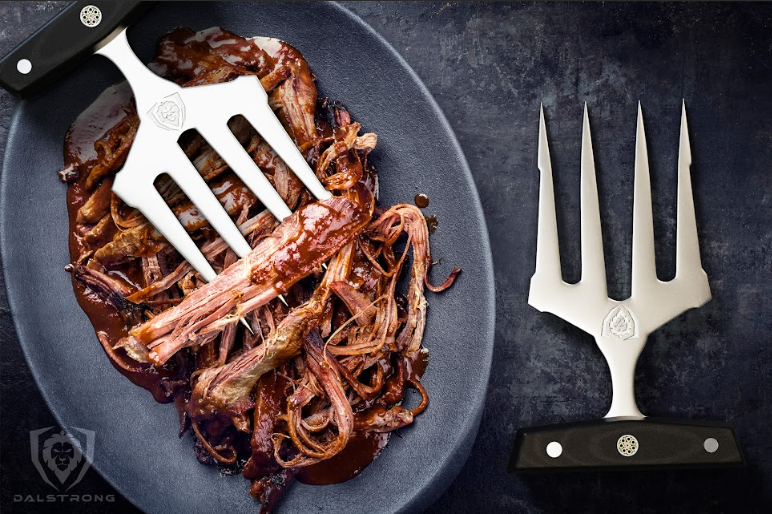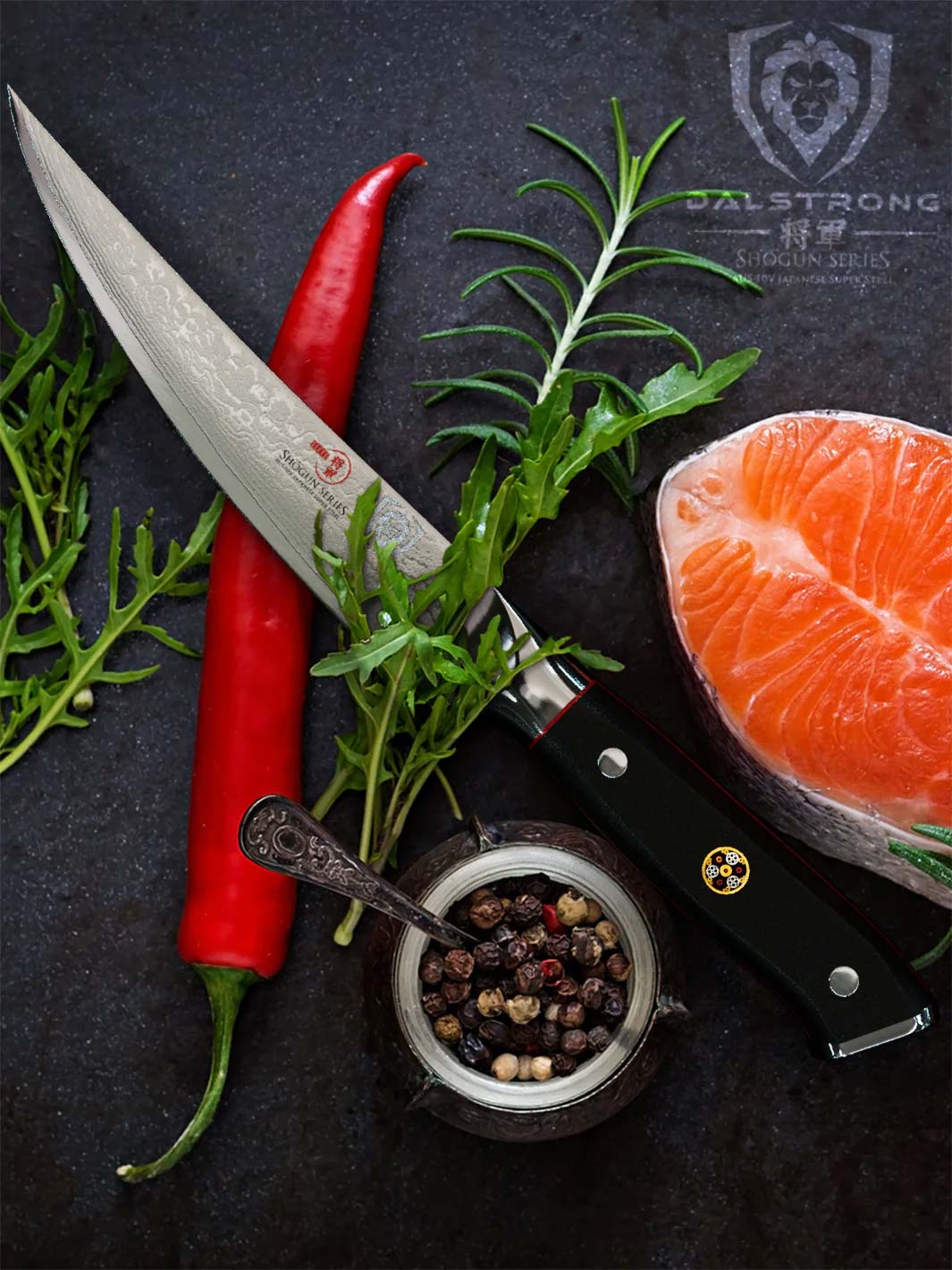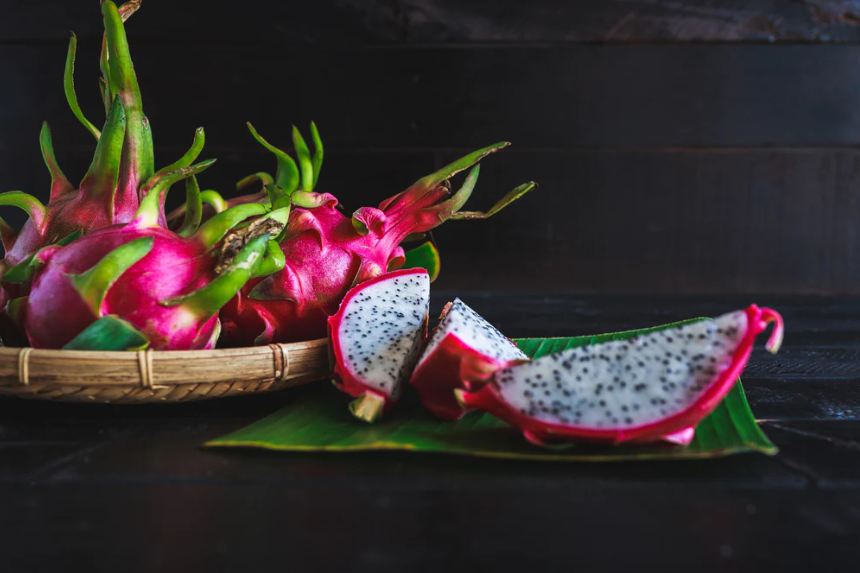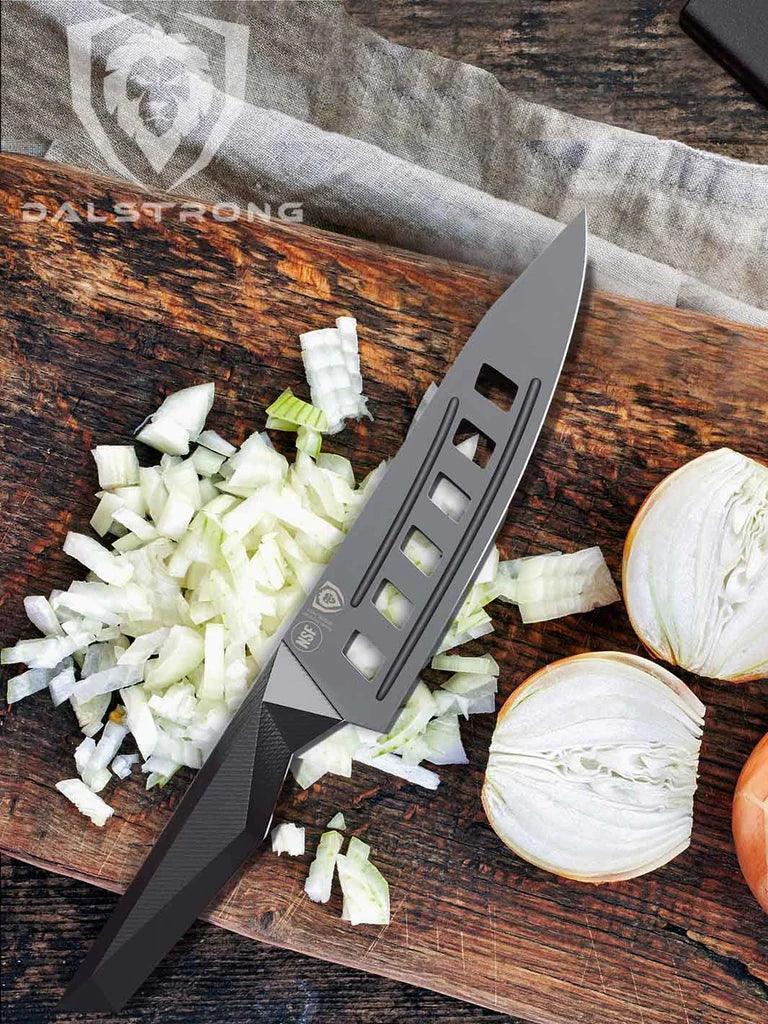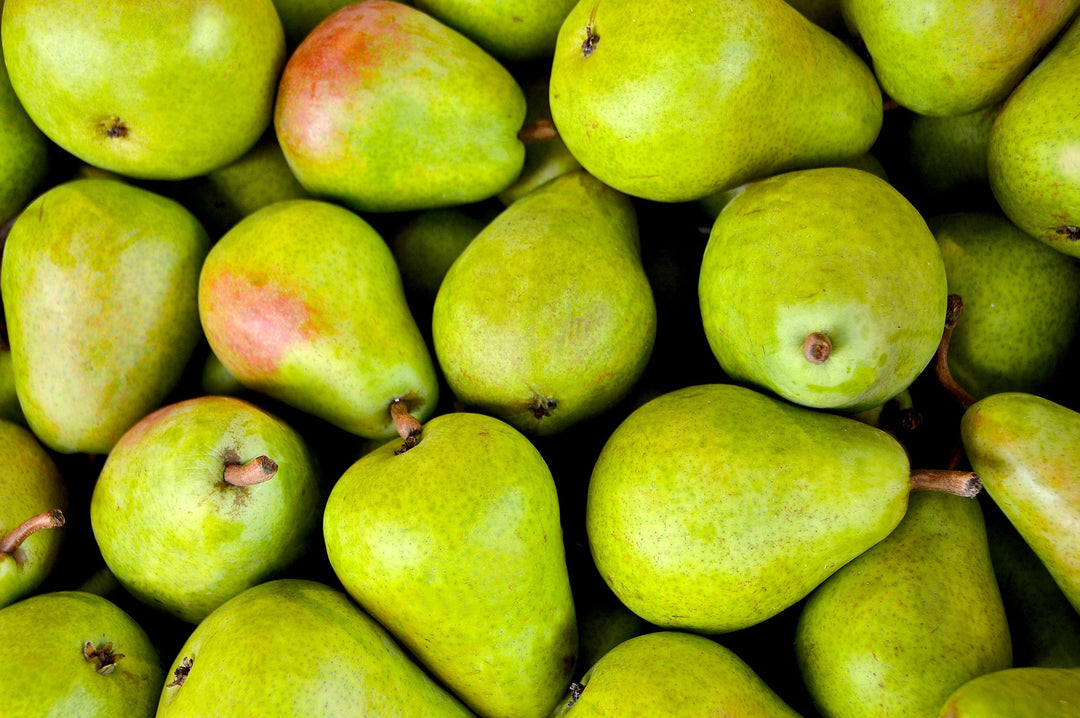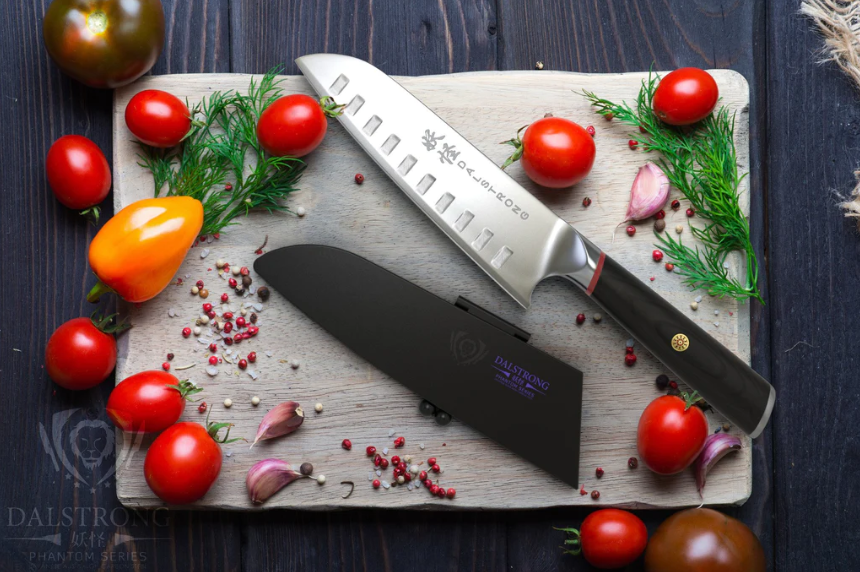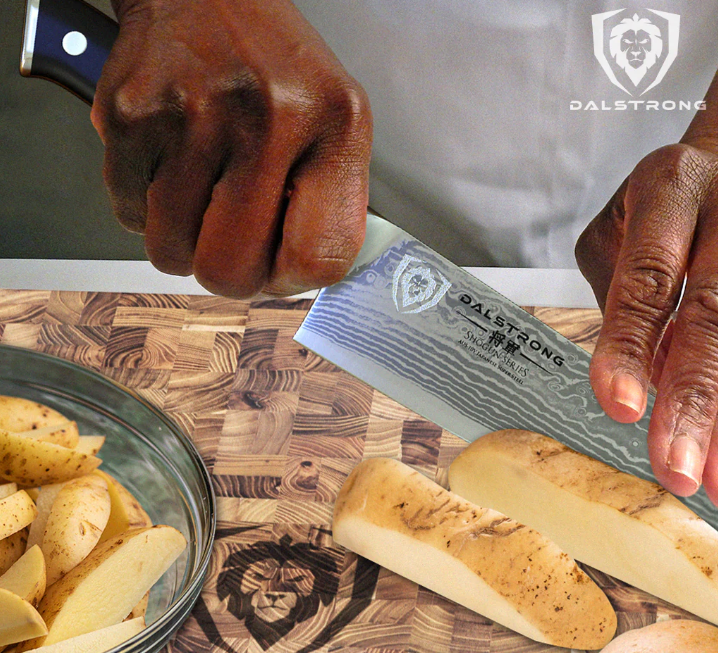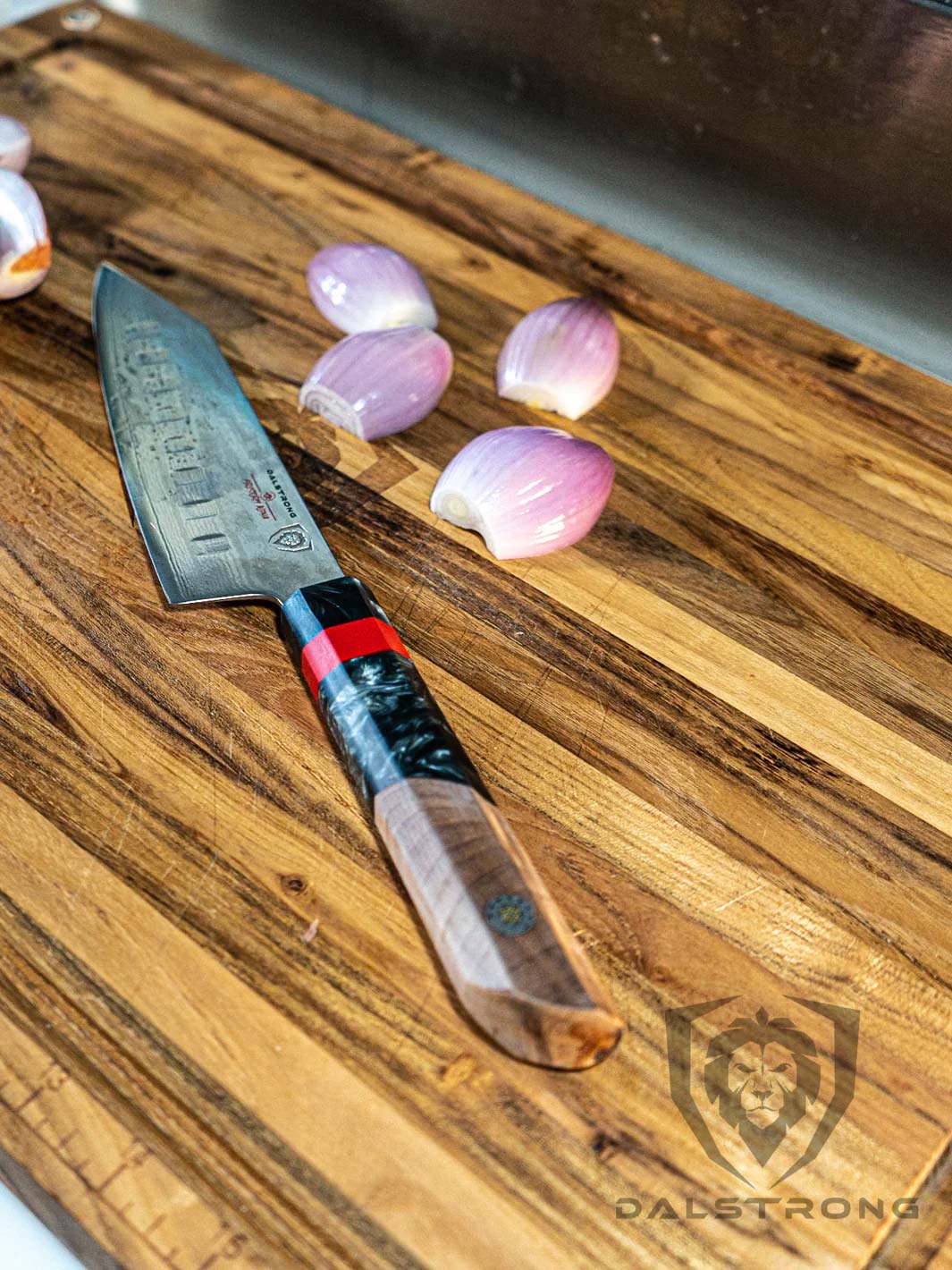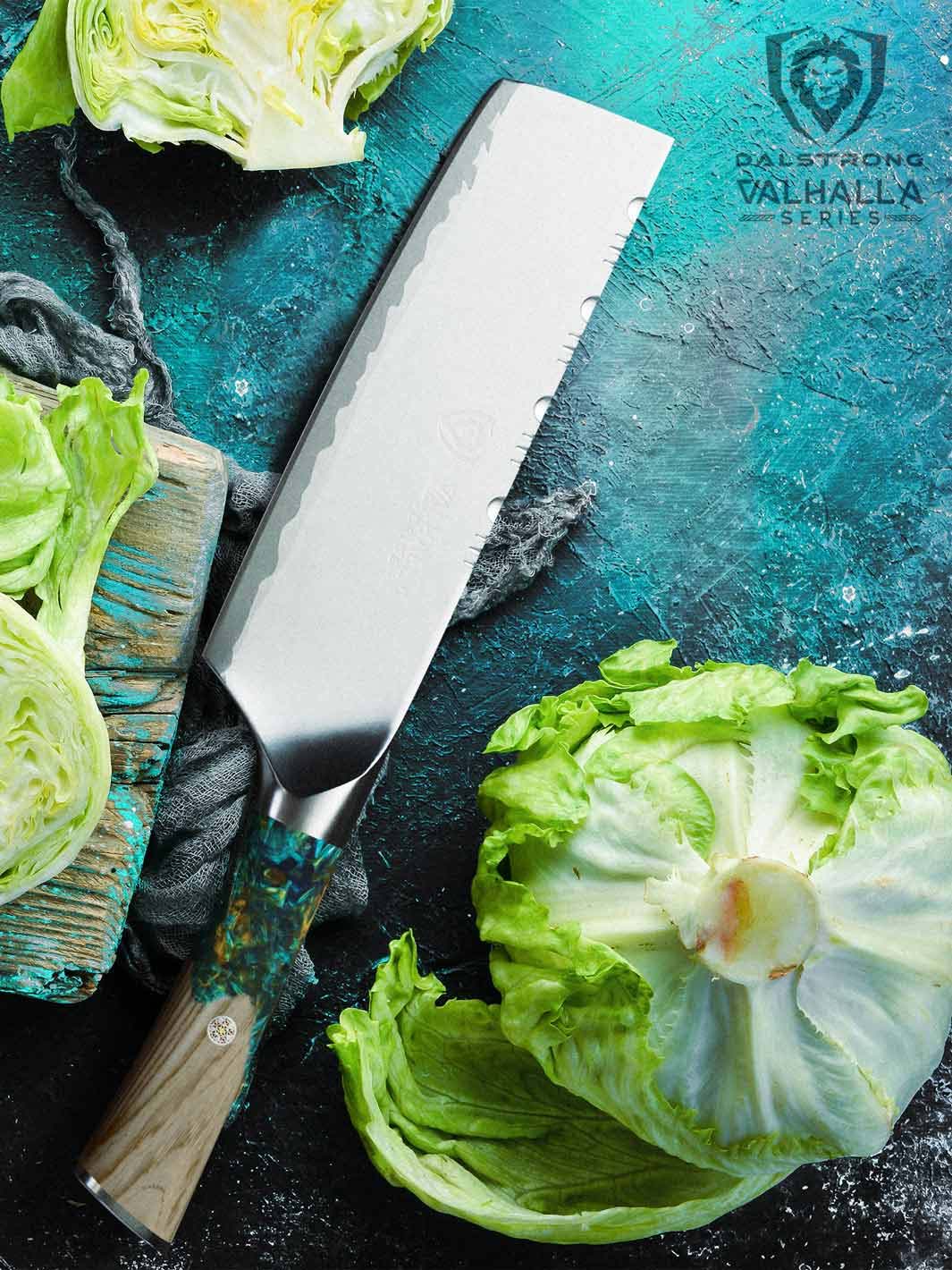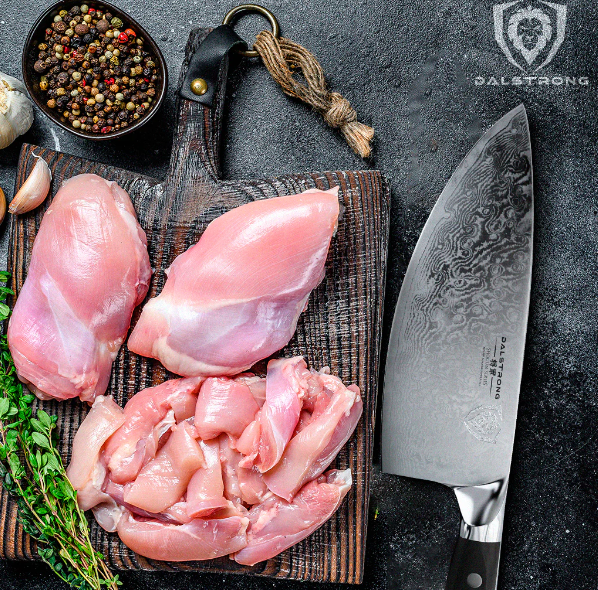Perfect Homemade BBQ Sauce Recipe
Perfect Homemade BBQ Sauce Recipe
- Add tomato sauce and apple cider vinegar in saucepan
- Add in brown sugar, molasses, and Worcestershire sauce
- Add in additional spices
- Stir together to combine over medium heat
- Bring to a simmer, then reduce heat to low
- Let it simmer 8-10 minutes until it reaches your desired thickness
- Store in fridge in an airtight container for up to 2 weeks

1. Why You Should Make Your Own BBQ Sauce

Dalstrong Meat Shredding Claws
There are few food traditions as satisfying as barbecue. Whether you’re throwing some cuts of meat on the grill on a hot summer day or taking it slow and easy with a barbecue brisket, a good barbecue is an amazing all-around feast for the senses.
Much has been said about the link between food and memory, and how the right combination of flavors can quickly shoot you right back to a specific time and place. For me, the smell of barbecue is linked with the backyard cookouts at my uncle’s place during my childhood. It’s an immediate memory trigger, as I would assume is the case for most people.
One of the things I remember most from those childhood days is my uncle’s homemade barbecue sauce. Sure, we’d have barbecue sauce in the house -- it came from a bottle that we picked up at the local grocery store. But it didn’t even come close to the stuff my uncle used to make for us. It was something truly special, and one of the things I most looked forward to.
The role of barbecue sauce
Obviously, barbecue sauce plays an important part in any good barbecue. Not only is it used as a condiment to top off the delicious meat you’re arduously grilling, it’s also often used as a marinate, infusing the entire meal with its tangy, smokey, delicious flavor. It goes on the meat, it goes on the sides, it permeates the entire experience. It’s an essential pillar of the barbecue experience.
Of course barbecue sauce isn’t just used during actual barbecues -- you can use it as a condiment on all manner of meals, any day of the week. And if you make your own homemade barbecue sauce, it’ll turn every meal into its own mini-cookout.
Whether you’re using barbecue sauce as part of an actual backyard barbecue or simply as a condiment for a home-cooked meal, the best move is always to go the extra mile and make your own homemade barbecue sauce.
Homemade bbq sauce vs. store-bought bbq sauce
This is a question that pops up repeatedly when it comes to barbecue: am I doing it wrong if I don’t have the time or desire to make my own sauce?
Here’s the reality of it: the store-bought sauce is good. You’re not a horrible monster for going with the more convenient option. A good bottle of store-bought barbecue sauce will certainly do in a pinch. For most people, it’s all they ever really need. This is not meant as a slight to them -- until very recently, I was one of them (and if I’m running low on time, I sometimes still am). Picking up a bottle of barbecue sauce from your local store is a legitimate choice.
But a true barbecue master knows that there’s a better way. That nobody ever reminisces nostalgically about a bottle of mass-produced sauce. That part of crafting the experience for your family and friends is to make your own sauce, using quality ingredients and tailoring it to your own taste. A barbecue master knows that the homemade stuff is always better, and that -- in a larger sense -- making your own barbecue sauce sends a message. Thankfully, meal prep time and cooking time is minimal!
Whether you’re entertaining guests at your own place, showing up at somebody else’s backyard barbecue, or simply making a meal at home for yourself and your family, making your own barbecue sauce signals that you’re someone who cares about making the experience special. That you know what you’re doing, and you’re happy to share the fruits of your work with the people who matter to you.
Look, we could sit here and wax philosophical on barbecue sauce for hours. But if you’re here, you’re probably interested in learning about this rich, smokey, often sweet, sometimes spicy, always satisfying concoction; what it is, where it came from, and how to make it. So let’s jump right into it.
2. History Of BBQ Sauce

As with just about every piece of food history, tracing the origins of barbecue sauce is a bit difficult. It’s not exactly clear-cut because it didn’t come down to a single person inventing it. Rather, it was a long, drawn-out process spanning decades and different regional takes, finally coalescing into what we all know today as “BBQ sauce.”
While this may feel frustrating for those looking for straightforward answers, it’s actually one of the cooler aspects of food history. Recipes will change and adjust as they find their way down generations, with alternative twists popping up on individual interpretations, shifting tastes, availability of ingredients and more. In this sense, food history serves as a microcosm of human culture; an example of how our practices, languages, and customs spread and change over time.
In the case of BBQ sauce, food historians have more or less traced it back to the formation of the first American colonies in the 17th century. It is believed that this very early version of BBQ sauce recipe was the “vinegar and peppers” variety, a simple and straightforward sauce first popping up on the coastal plains of North and South Carolina.
In the 18th century, German settlers brought along their use of mustard, which eventually resulted in the South Carolina style mustard-based barbecue sauce. This is still evident in the names of the families involved in the mustard-based barbecue sauce business.
Around 1900, when tomato ketchup became a readily available condiment, there was another advancement in BBQ sauce history with the development of the “light tomato” BBQ sauce variety. This simply meant combining ketchup with the tried-and-true vinegar and pepper BBQ sauce, resulting in a sweet sauce with a different flavor profile.
The final type of BBQ sauce to appear is also the most popular type of BBQ sauce currently: the “heavy tomato” variety. It’s much more recent than the other types, appearing in the mid 20th century. This take on the BBQ sauce recipe is considerably sweeter, tangier, and thicker, becoming the standard definition of “BBQ sauce” for the general population thanks to its mass production by companies like Heinz and Kraft Foods.
Slightly different takes on this sauce would continue to appear over the following decades, but that combination of sugar, ketchup, Worcestershire sauce, and that “smokey” kind of flavor (often aided with the addition of liquid smoke) has solidified in most people’s minds as the classic taste of BBQ sauce, which goes great on beef, chicken, pork, etc.
3. Different Variations Of BBQ Sauce

And just like with any wildly popular food with a long history, there are several variations of BBQ sauce. These can be more or less broken down regionally, but some of those differences are pretty minor. In broader terms, we can categorize them based on their ingredients.
Tomato based barbecue sauces
Tomato started being incorporated into barbecue sauce around the 1900s and remains the most popular type of barbecue sauce to this day. It’s a pretty natural fit when you think about it, with the sweet tanginess of the tomato contrasting nicely with the savory taste of barbecue meats.
Within this variety, you’ll find classic options such as Texas BBQ sauce, which is a thin sauce that mixes tomato with spices, celery and onions. St Louis BBQ sauce recipes are similarly thin, but they include ketchup, apple cider vinegar, and brown sugar.
Several BBQ sauce recipes involve sugar (sometimes brown sugar) as a prominent ingredient. These sauces are thicker and, of course, considerably sweeter. One thing to take into consideration is that these tomato-and-sugar based sauces will burn quicker, so be careful about using them while you’re cooking.
Some BBQ sauces involve molasses, which adds a very specific texture. One of these is Memphis style barbeque sauce. Kansas City barbecue sauce also combines molasses and ketchup, and it goes great on ribs and grilled chicken. It will often also involve cayenne pepper, red pepper flakes, or chili powder for added heat.
Vinegar based barbecue sauces
If you’re a fan of the thinner, vinegary tang, you’ll be more drawn to sauces that use vinegar as their base ingredient. These often do incorporate tomatoes or ketchup, so there is a bit of overlap there.
Many of the traditional Southern BBQ sauces actually don’t use tomatoes at all, so they are on the thinner side, cutting through the fat and letting the flavor of the meat shine through. For instance, the traditional North Carolina BBQ sauce features ketchup, Worcestershire sauce, butter, and brown sugar -- it is absolutely heavenly on pulled pork.
Another example is Florida barbecue sauce, which has a strong vinegar profile. It’ll typically consist of cider vinegar, lemon and lime, and Worcestershire sauce. It is absolutely delicious, and has a certain Caribbean and tropical taste to it.
You’ll also find a pretty different type of barbecue sauce in Alabama white barbecue sauce, which is made of vinegar, brown sugar, and mayonnaise. That’s right: mayonnaise. It’s unusual, but not unheard of, and the combination actually works much better than you’d expect. Its flavor might remind folks of Ranch dressing.
Mustard based barbecue sauces
As we’ve established, mustard-based barbecue sauces have a long history in the US, developed by German settlers and working their way into the country’s culinary traditions. You’ll find these sauces mix yellow mustard with vinegar, Worcestershire sauce, and additional seasonings.
The South Carolina barbecue sauce is made with plain yellow mustard. It is tangy and spicy, with not a hint of sweetness. It usually includes cider vinegar, Worcestershire sauce, and sometimes even hot sauce.
Another mustard-based staple is Georgia mustard barbecue sauce, which goes incredible on pulled pork and chicken. As opposed to the South Carolina style barbecue sauce, this one sometimes does include brown sugar in the recipe, resulting in a sweeter type of sauce.
4. Barbecue Sauce Recipe

Considering all these different types of barbecue sauce, and the many different ways in which they can be made, it might be daunting to try to find the best homemade BBQ sauce recipe.
For this guide, we are going with a homemade version of the classic tomato-based BBQ sauce recipe. This sauce also uses brown sugar, so it is fairly sweet while also feeling substantial and tangy. You’ll find it hits all the right nostalgia spots while tasting richer, more complex, and straight-up better than all the store-bought stuff.
Of course, the idea behind any recipe is for you to make it your own. Follow along with these steps and try the end product -- then tweak it however you please based on your own personal tastes, as well as feedback from your guests. Don’t be afraid to deviate from the steps as we’ve outlined them below. Take ownership of the recipe, because it’s supposed to work for you.
So here is our homemade BBQ sauce recipe
|
Prep time |
5 minutes |
|
Cook time |
10 minutes |
|
Servings |
8 servings |
|
Calories |
118kcal |
Ingredients
These ingredients are an approximation based on personal preference; feel free to adjust quantities or ingredients to fit your own tastes.
|
Tomato sauce (no salt added) |
1 ½ cups |
|
Apple cider vinegar |
3 tablespoons |
|
Packed dark brown sugar |
⅔ cup |
|
Molasses |
1 ½ tablespoons |
|
Worcestershire sauce |
1 tablespoon |
|
Salt |
1 teaspoon |
|
Dry mustard |
2 teaspoons |
|
Chili powder |
2 teaspoons |
|
Smoked paprika |
2 teaspoons |
|
Onion powder |
1 teaspoon |
|
Liquid smoke |
2 teaspoons |
|
Garlic powder |
½ teaspoon |
|
Celery seeds |
¼ teaspoon |
|
Ground cloves |
¼ teaspoon |
|
Ground red pepper |
¼ teaspoon |
|
Tomato paste |
1 6-ounce can |
Process
The process of making this homemade BBQ sauce is extremely simple.
- Place all your ingredients in a pan over medium low heat. Stir to combine.
- Bring the ingredients to a simmer, then reduce the heat to low.
- Let it simmer for about 8 to 10 minutes, or until you notice it’s thickened to your desired texture.
- Store in an airtight container in the fridge for up to 2 weeks, or freeze for up to 6 months.
There you have it. Easy, straightforward, deliciously smokey and sweet homemade BBQ sauce.
Additional tips
- If you’re a heat lover, feel free to add a splash of Tabasco or a similar vinegar-based hot sauce (Crystal or Franks also work great). You could also add additional cayenne pepper.
- I recommend using smoked paprika rather than regular paprika. There’s just something wonderful about the added dimension that smoked paprika brings to the table. You should be able to find smoked paprika in most grocery stores.
- Feel free to not include molasses, but it will affect the texture considerably.
- Be sure to let it simmer on low heat; if you get it too hot, you’ll make a mess all over your kitchen (trust me on this one).
5. Which Foods Go Best With BBQ Sauce

Of course, BBQ sauce is best enjoyed over barbecued meats. There are few things that are as triumphantly indulgent as a good barbecued brisket with a generous slathering of this delicious sauce. But you’re likely not barbecuing every day, and you might have some homemade BBQ sauce left over. What else can we use our BBQ sauce on?
- Homemade BBQ sauce goes beautifully on grilled chicken.
- You can brush it over chicken wings before cooking.
- Toss it with pulled pork for incredible sandwiches. Actually, it goes great with pork in general.
- Makes for an absolutely incredible topping for homemade hamburgers.
- You can use it as a dip for foods such as chicken nuggets or chicken tenders.
- If you’re a fried chicken fan, this is also a great topping.
- Spread it over a meatloaf to bump it up a couple of notches.
- It goes fantastically with baked beans.
- Absolutely perfect for BBQ chicken pizza.
- Believe it or not, you can even drizzle it over a salad.
6. Frequently Asked Questions
How long does homemade BBQ sauce last?
When you’re making homemade barbecue sauce, you’re forgoing the preservatives that go into the mass-produced bottles you can pick up at a grocery store. This is, on the whole, a good thing; it’s better for flavor and often better for health. But losing those preservatives also means that the shelf life of your barbecue sauce is shortened considerably.
Of course, following the recipe above will produce barbecue sauce that is so tasty and addictive you’ll probably finish it off quick enough that this won’t even be a concern. Still, it’s a good thing to know that homemade barbecue sauce will stay fresh in an airtight container stored in the fridge for up to 2 weeks.
If you want, you can also freeze it and use it later -- it’ll keep for up to six months.
Is BBQ sauce bad for you?
Like most delicious things in the world, barbecue sauce can be bad for you in excess. Such is the sad irony of humanity. It contains high amounts of sugar and salt, and is pretty calorically dense. If you’re looking to watch your weight, maybe don’t drench every piece of meat in barbecue sauce.
That said, not everyone considers it a priority to watch their weight, and even those who do can indulge themselves from time to time. It’s your body, so you get to choose your priorities. Don’t let anyone tell you differently.
Is BBQ sauce keto?
The ketogenic diet is an extremely popular low-carb diet. It’s meant to reduce the glucose from carbohydrates in your system to force your body into ketosis, so that your body relies on stored fat for energy (I’m not a nutritional expert, so take this broad-strokes explanation with a grain of salt).
Of course, sugar is a carb, which is meant to be strictly regulated during the keto diet. If you’re on this diet, you have a certain daily carb threshold that you shouldn’t cross. Since the homemade barbecue sauce recipe above contains a fair bit of sugar, it is certainly not keto friendly. However, you can seek out a low-sugar or no-sugar recipe that does comply with the keto diet. Good luck!
Is BBQ sauce bad for dogs?
If you have a pooch running around during your backyard barbecue, it’s of course natural to want to give them something to munch on. In a general sense, a low amount of barbecue sauce should be fine for a dog to consume. However, do keep in mind that if a sauce contains garlic (or garlic powder), onions (or onion powder), excess salt or sugar, it can be detrimental to dogs’ health.
Overall? We’d encourage you not to risk it. It’s not worth putting your pet’s health in jeopardy. If you want to throw them something to eat, maybe reach for a piece that’s not smothered in barbecue sauce. It’ll be better for their health and for your peace of mind.
How can you thicken BBQ sauce?
There are a few ways to thicken your homemade barbecue sauce.
- Boil the barbecue sauce: A good way to thicken your sauce is to boil away the excess moisture. Simply put the sauce into a saucepan over medium heat, stirring occasionally. Once it boils, reduce the heat to low until it reaches your desired thickness.
- Add butter for a thicker and creamier texture: Heat one cup of barbecue sauce with 1 tablespoon of butter over a medium heat, then reduce the heat to low once it starts to boil. Keep in mind that this does alter the sauce’s flavor -- usually in a good way!
- Add heavy cream for a thicker texture and rich flavor: Same principle here. Combine 1 tablespoon of heavy cream with 1 cup of barbecue sauce. Heat them together until it boils, then lower the heat so that the sauce simmers. Stir until it reaches your desired consistency.
- Use flour or cornstarch: Heat the barbecue sauce in a saucepan over low heat. In a separate bowl, mix 2 tablespoons of flour and a quarter cup of water (or 1 tablespoon of cornstarch with 1 tablespoon of water); mix until there’s no lumps. Then add the thickener to the sauce and bring to a boil, stirring occasionally. Remove from the heat when it is slightly thinner than you want it -- your sauce will continue thickening as it cools.
What makes Texas BBQ sauce different?
It’s common for the more traditional restaurants in the state to have a barbecue sauce that resembles a thin tomato soup, which allows for it to penetrate the meat more easily rather than sit on top of it.
Texas BBQ sauces are typically seasoned with cumin, chili peppers (or chili powder), black pepper, and fresh onion. Usually they will include less tomato and sugar.
What are the common ingredients in barbecue sauce?
Common ingredients in barbecue sauce typically include tomato sauce or ketchup, vinegar, sweeteners like sugar or molasses, spices such as paprika and chili powder, and seasonings like salt and pepper. Some recipes may also incorporate Worcestershire sauce, mustard, liquid smoke, or hot sauce to create variations like spicy BBQ sauce. It's a versatile condiment used for grilling, smoking, or slow-cooking meats like pork ribs, making for easy and flavorful 30minute meals in the Instant Pot or as a glaze for various dishes. Enjoy!
Is BBQ sauce just ketchup and sugar?
BBQ sauce is more than just ketchup and sugar, although those are key components. Homemade barbecue sauce recipes often include ketchup as a base and add a combination of ingredients like dark brown sugar, vinegar (which adds acidity), spices such as paprika, black pepper, and dry mustard, and sometimes additional flavorings like Worcestershire sauce or liquid smoke. These ingredients come together to create a complex and flavorful sauce, perfect for dishes like BBQ chicken or BBQ chicken pizza.
What is real BBQ sauce?
Real BBQ sauce, often referred to as authentic or traditional, varies by region and personal preference. However, it typically contains a tomato or vinegar base, sweeteners like sugar or molasses, spices such as paprika or chili powder, and various seasonings like salt and pepper. Real BBQ sauce is known for its rich, smoky, and flavorful profile, used for marinating, basting, or dipping in barbecue dishes, like smoked meats and grilled chicken.
What are the three types of BBQ sauce?
Tomato-based BBQ Sauce: This type uses tomato sauce or ketchup as its base and is often sweet and tangy. Vinegar-based BBQ Sauce: These are thinner and more acidic, with a prominent vinegar flavor. Common in the Carolinas. Mustard-based BBQ Sauce: Typically found in South Carolina, it's made with mustard, vinegar, and sweeteners, offering a tangy and slightly spicy profile.Shop Dalstrong BBQ Meat Shredding Claws Today
Written by Jorge Farah
Born on the coast of Colombia and based in Buenos Aires, Jorge is a cooking enthusiast and kitchenware obsessive with a tremendous amount of opinions.

































































































































































